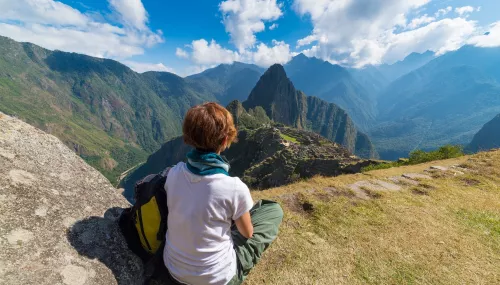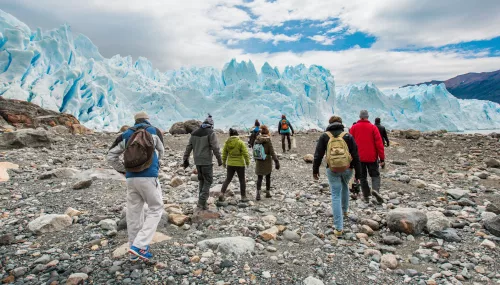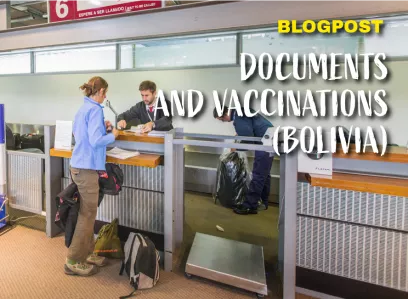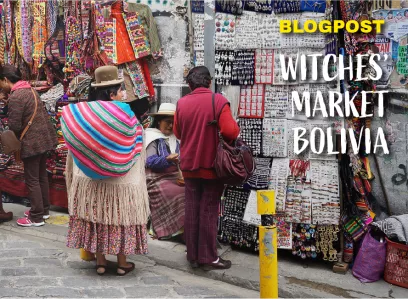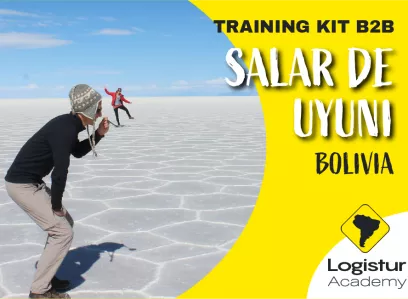It is important to provide your clients with the documents and vaccinations that the government stipulates or recommends for entry to Bolivia. Due to the Corona pandemic, additional documents may be required. Please contact us directly for further information in this regard.
1. Documents and Visa
EU and Northern American citizens who enter Bolivia as tourists do not need a visa for a stay of up to 90 days per calendar year. To enter Bolivia, a passport is required, which must be valid for at least 6 months after entry. The residence permit is initially issued for 30 days and can be extended free of charge by the migration authority 2 times to a further 30 days each, until 90 days have been reached.
2. Vaccinations
Travelers entering from EU countries or North America do not require compulsory vaccination. Attention: A yellow fever vaccination is compulsory when entering a yellow fever area. In addition, certain vaccinations are recommended:
Yellow Fever
In general, a yellow fever vaccination is recommended for all travellers who travel to the tropical areas of Bolivia (All areas in Bolivia below 2,300m and thus among others the entire Bolivian Amazon are yellow fever transmission areas). The vaccination is valid from the 10th day of vaccination in international travel.
Hepatitis A
Hepatitis A viruses are transmitted via contaminated drinking water and food and lead to inflammation of the liver. The pathogens can hide on seafood such as mussels or vegetables. The resulting liver disease usually heals completely, but puts the patient out of action for two to three weeks. Sometimes even an inpatient hospital stay is necessary. A hepatitis A vaccination is also possible shortly before the start of the journey, but should ideally take place about two weeks before the start of the trip.
Hepatitis B
The virus is transmitted primarily through sexual intercourse and when in contact with blood or other bodily fluids. In addition, simple actions are also risk factors, e. g. sharing nail clippers. An infection of the liver caused by hepatitis B is much more severe than with hepatitis A. It can lead to chronic inflammation of the liver with long-term consequences such as liver cancer or cirrhosis of the liver.
The vaccine is recommended for travellers who wish to spend longer periods in the country. Hepatitis B vaccination should be started no later than five weeks before departure and consists of three injections.
Typhoid fever/Typhus
The life-threatening disease typhoid is transmitted by Salmonella into improperly cooked foods or through contaminated drinking water. Symptoms include fever, abdominal pain and a weak pulse. If left untreated, typhoid fever can be fatal. The uncomplicated swallowing vaccination against typhoid should therefore always be considered.
The vaccination should be completed at least 10 days before the start of the journey. Alternatively, an injection vaccination can be performed.
Rabies
Although rabies is far rarer than hepatitis, it is still recommended when traveling to rural areas for longer periods of time. The disease is caused by scratches or bites from stray dogs or other animals. The viral infection triggers acute meningitis (encephalitis), which - if not vaccinated immediately - is always fatal.
Immunisation takes place in three partial vaccinations at intervals of one and two weeks. The vaccination programme should therefore be started at least five weeks before the start of the journey. For last minute travellers, there is a quick schedule that can be completed within a week.
Others
Every traveller to Bolivia should have the standard vaccinations generally recommended in their countries, such as measles, whooping cough, tetanus, diphtheria and polio.
3. Entry
If you enter Bolivia by plane, you will be stamped with an entry stamp on your passport. Upon arrival at the airport, a tourist card must be presented, which is usually already handed out on the plane. The copy of this card must be carried during the entire stay and returned on departure.
When entering by land, especially by night bus, it can happen that the border controls are simply passed through and the entry stamp in the pass is missing. This means that the person entering the country is not registered and thus resides illegally in the country. If this should happen, you have to go to the migration office and have the stamp added.
4. Customs rules applicable to imports and exports from Bolivia
If you import or export more than US$50,000 in cash, you must obtain prior approval from the Bolivian Central Bank. The acquisition, possession, consumption and also the export of Mate de Coca (coca tea) is legal under Bolivian law, but if you want to pass customs in the European or North American countries, there will be problems (importation is against the narcotics law). If the traveller is dependent on medication, he should first obtain a prescription or issue a translation of it, which can be shown on importation into Bolivia.
For the most up-to-date information you will always have to check the official pages (e. g. the Federal Foreign Office or the Bolivian Embassy) to know the latest comments.
Do you have questions about one of the destinations? Then please contact our specialists!


